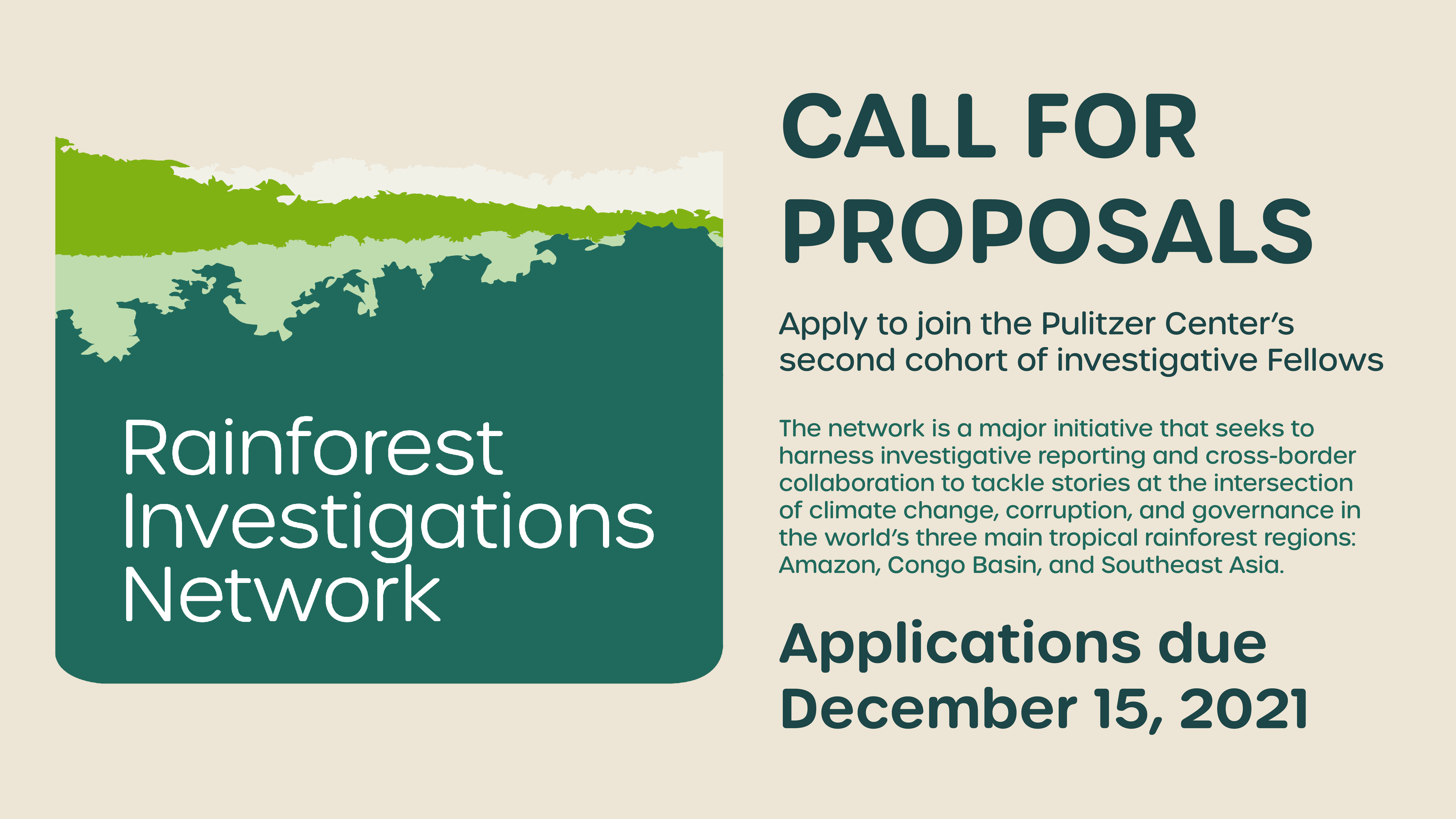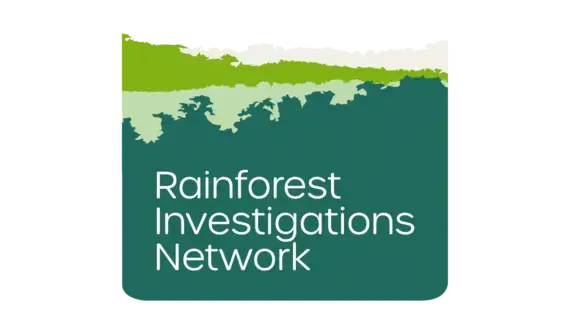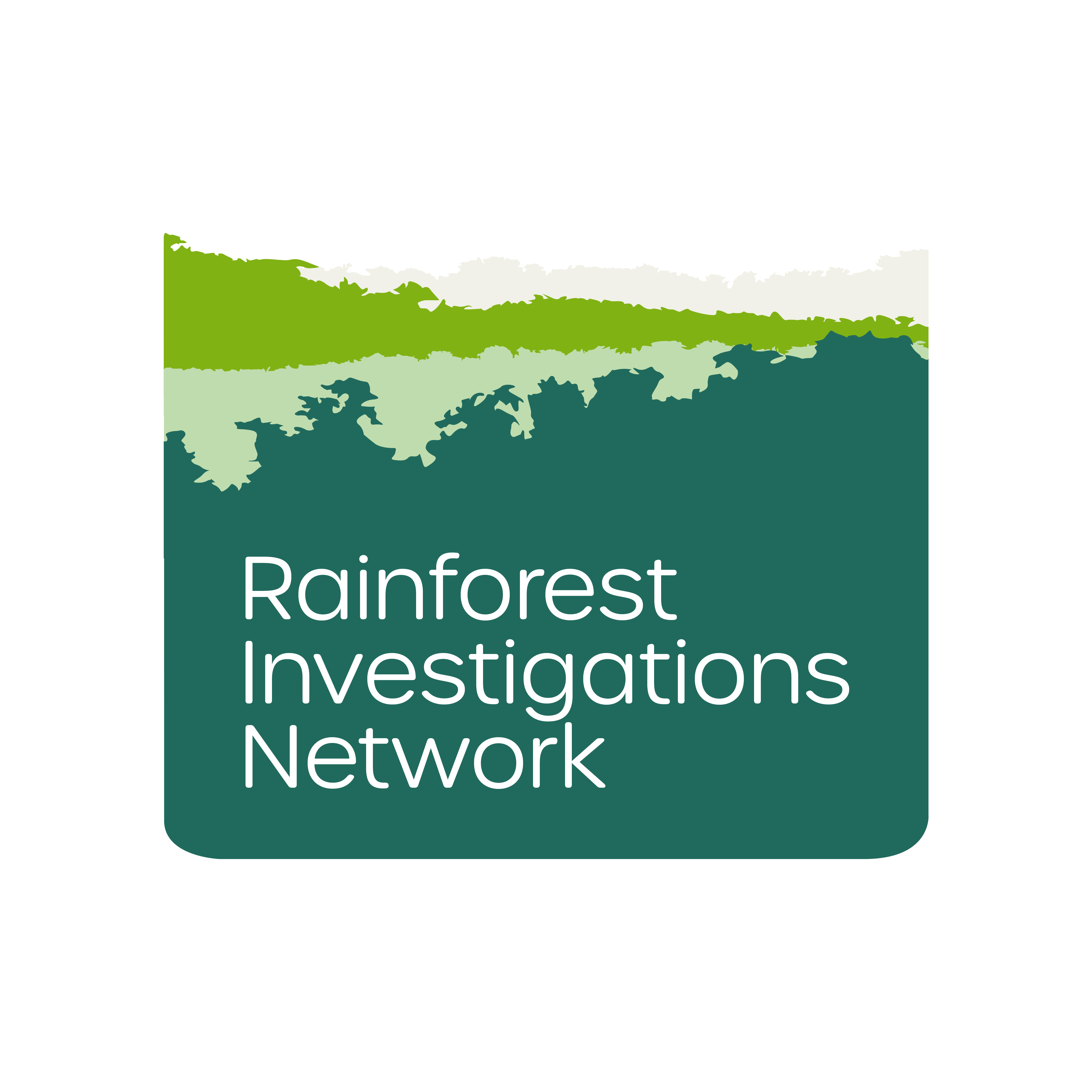
Ver los términos y detalles para postular en español
Ver termos e detalhes para se candidatar em português
Voir les conditions et les détails pour postuler en français
Klik di sini untuk panduan tentang cara mendaftar dalam Bahasa Indonesia
The Pulitzer Center, a nonprofit organization that supports independent global journalism, is now accepting reporting fellowship applications for its Rainforest Investigations Network (RIN).
Few stories are more urgent—and global—than the destruction of the planet’s tropical rainforests. The Pulitzer Center’s RIN seeks to create an ecosystem of collaboration among journalists to follow the money and the many illegal practices and legal loopholes that enable industrial-scale deforestation.
The RIN Fellows will work on individual and collaborative investigative reporting projects to systematically probe the drivers of deforestation across the three main rainforest regions (Amazon, Congo Basin, and Southeast Asia), from money flows and supply chains to land-grabbing activities and human rights violations.
We are seeking to recruit experienced investigative journalists in each of the rainforest regions as well as journalists based at major global media outlets.
The full-time, year-long fellowships will cover the reporter's salary and provide additional support for the media outlet that employs the journalist (if on staff) or that agrees to host the Fellow (if a freelancer).
The Rainforest Investigations Network is coordinated by Brazilian journalist Gustavo Faleiros, a pioneer of rainforest accountability reporting and founder of the data journalism outlet InfoAmazonia. The RIN core team includes data editor Kuang Keng Kuek Ser and investigative journalist Jelter Meers. The Fellows will also work with other Pulitzer Center staff, such as Executive Editor Marina Walker Guevara.
Fellows are expected to devote the majority of their time to their rainforest investigations and to publish regularly. They will receive training as well as data, communication, research, and coordination support from the Pulitzer Center and will work closely with their co-Fellows around the world, benefiting from one another’s skills and diverse perspectives.
The initiative will also work in collaboration with the Pulitzer Center's education and outreach teams. Fellows will have the support of local education coordinators, who will identify outreach opportunities to share investigation findings at schools and universities.
The Rainforest Investigations Network is a sister initiative of the Pulitzer Center's Rainforest Journalism Fund. It is funded with the support of the Norwegian International Climate and Forest Initiative (NICFI). The NICFI grant includes an explicit guarantee as to full editorial independence for the Pulitzer Center as well as for the Fellows and news organizations taking part.
The journalists selected in this round will make up the second cohort of RIN investigative fellows since the initiative’s launch at the end of 2020. To meet the inaugural group of fellows and read their stories, click here.
Who is eligible to apply?
- Experienced investigative journalists with a proven track record based in the Amazon (three fellowships), Congo Basin (three fellowships), and Southeast Asia (three fellowships) regions. Additional fellowships will go to journalists working at global media outlets, who can be based outside the rainforest regions.
- Reporters based in countries neighboring the three main tropical rainforest regions—Amazon, Congo Basin and Southeast Asia—may also apply but will need to focus their reporting during the fellowship on deforestation/supply-chain stories related to these regions.
- Staff or freelance journalists working on a wide range of platforms including print, radio, video, and multimedia. Freelance reporters will need to have the support of a local or international newsroom that agrees to host them and publish the work they produce during the fellowship.
- Team players with the experience and/or ability to work collaboratively across newsrooms and borders.
- Reporters with a deep understanding of the scientific, environmental, social, legal, political, and commercial forces at play in deforestation and forest degradation around the world—and why this issue matters to our global well-being.
- Reporters willing to participate in outreach activities related to their investigations, such as events at schools and universities.
Benefits for RIN fellows
- The opportunity to work on impactful investigations that are time-consuming and costly.
- A global network of top-notch investigative reporters who will aid your investigations and complement your skills.
- Access to data and documents as well as the opportunity to sharpen your data skills with support from the Pulitzer Center's data and research team.
- Specialized training opportunities such as the use of satellite imagery and other digital tools in investigations, corporate and follow-the-money research, and more.
- The opportunity to work on stories that transcend your country and region and can achieve true global impact.
- A community of like-minded colleagues that will continue beyond your fellowship.
- The possibility of renewing your fellowship for an additional one or two years based on performance.
- Salaries commensurate with experience.
Please note that selected candidates will work remotely.
To apply, you will be asked to provide:
- A statement of purpose: How this fellowship fits in your career path and why you are best positioned to be a Rainforest Investigations Network fellow. You may also include how collaboration with journalists from other regions can benefit your investigations or how you might be able to assist them. (500 words)
- An investigative project proposal describing the most ambitious rainforest reporting you seek to pursue during your fellowship. Please do not propose general themes but concrete investigative projects that aim to uncover systemic wrongdoing/abuse that is unknown or hidden. It is expected that by the time you apply you have already done pre-reporting to determine the scope, feasibility, and novelty of the project . A compelling, well-researched project proposal with a reporting plan will help you stand out among hundreds of applicants. (500 words)
- Three examples (links) of your most impactful investigations published in the past three years.
- A letter of support from your media employer or a newsroom that has agreed to host you as a Rainforest Investigations Network fellow and publish your work.
- Three professional references: These can be either contact information or letters of recommendation.
- A copy of your resume or curriculum vitae.
Deadline:
Please apply using this form before 11:59pm EDT on December 15, 2021.
We encourage applications in English but accept materials in other languages if needed.
If you have questions, please contact Gustavo Faleiros at [email protected] or Jelter Meers at [email protected]
We encourage proposals from journalists and newsrooms that represent a broad array of social, racial, ethnic, and underrepresented groups, and economic backgrounds.







